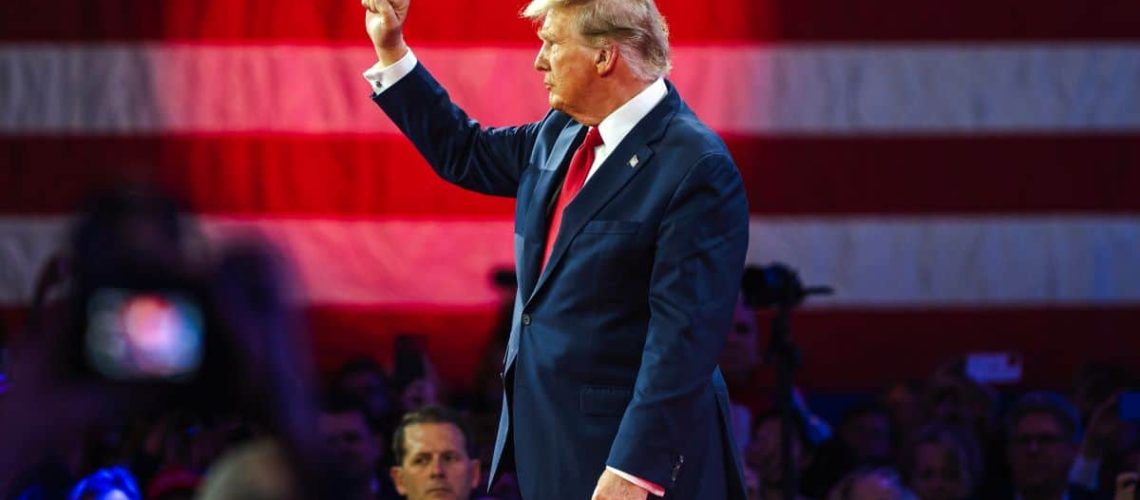As we head into the 2024 presidential election, Donald Trump’s stance on LGBTQ+ rights continues to be a lightning rod for debate. While he started his political career with a seemingly supportive tone, his track record shows a steady rollback of LGBTQ+ protections. What does Trump’s evolving legacy mean for the LGBTQ+ community in 2024? Is his approach part of a broader cultural backlash or a genuine commitment to conservative values?
From Promises to Policy: A Changing Stance
Back in 2016, Trump shocked many when he said, “As your president, I will do everything in my power to protect our LGBT citizens from the violence and oppression of a hateful foreign ideology.” However, his administration’s actions quickly contradicted this promise. One of the earliest reversals came in 2017 when his administration rescinded the Obama-era guidance allowing transgender students to use bathrooms matching their gender identity in schools.
The most notable move was his 2017 military ban on transgender individuals. In a series of tweets, Trump stated, “the United States government will not accept or allow … transgender individuals to serve in any capacity in the US military.” This policy reversal sparked widespread outrage, and it was viewed as a significant setback for LGBTQ+ military personnel, especially those who had served openly since the policy change in 2016.
Healthcare Protections Reversed
Trump’s administration also moved to undermine protections in healthcare. By 2020, the Department of Health and Human Services (HHS) removed LGBTQ+ protections under Section 1557 of the Affordable Care Act, a rule that had previously barred discrimination based on gender identity in healthcare services. This rollback was seen as a direct attack on transgender and gender non-conforming people’s rights to receive care.
By 2024, Trump doubled down on his opposition to gender-affirming care for minors. In campaign videos for his 2024 run, Trump vowed to “stop” gender-affirming care for minors, which he equated to “child abuse” and “child sexual mutilation.” and called for a nationwide ban on such procedures for youth.
Supporters Versus Critics
While conservative supporters argue that Trump’s policies protect religious freedoms and traditional family values, LGBTQ+ advocacy groups see these actions as an assault on civil rights. The American Civil Liberties Union (ACLU) has consistently criticized Trump’s record, claiming that his administration made attacking LGBTQ people a top priority.
Meanwhile, Human Rights Campaign (HRC) President Kelley Robinson said Trump has “attacked the progress we have made toward full equality for the LGBTQ+ community and undermined the rights of countless Americans.” The HRC’s “Timeline of Hate” details over 180 actions Trump’s administration took against LGBTQ+ individuals.
2024: The Road Ahead
In 2024, Trump has made it clear that LGBTQ+ issues, particularly transgender rights, will remain a key part of his platform. During the Moms for Liberty Summit in 2024, Trump said he would get “transgender insanity the hell out of our U.S. armed forces.”
Donald Trump focused on transgender issues in sports, claiming that Algerian boxer Imane Khelif had transitioned, and that he wouldn’t want to fight her. This fed into his broader narrative about restricting transgender participation in sports.
Trump also advocated for eliminating the Department of Education, pushing for policies that bar transgender athletes from competing in women’s sports and restricting school content on race and sexuality. His comments were met with applause from the audience, many of whom support conservative values, including opposition to gender-affirming treatments for minors.
A Threat to America
Trump continued to frame transgender identity as an ideological issue, claiming that the recognition of transgender individuals is a threat to traditional American values. His rhetoric, often described as inflammatory, continues to polarize Americans and has mobilized both his conservative base and LGBTQ+ activists alike.
He further questioned the motivations behind policies supporting transgender rights, implying that these policies are driven by political correctness rather than genuine concern for individuals. This rhetoric echoes Trump’s broader platform, which frequently positions LGBTQ+ rights, particularly transgender rights, as part of a cultural battle.
A Sharp Divide
As the 2024 election approaches, Trump’s policies and rhetoric on LGBTQ+ issues remain as divisive as ever. His legacy, marked by rollbacks of protections and inflammatory statements, has drawn sharp lines between those who view him as a defender of conservative values and those who see his actions as a grave threat to civil rights.
Featured Image Credit: Shutterstock / Jonah Elkowitz.
The images used are for illustrative purposes only and may not represent the actual people or places mentioned in the article.
For transparency, this content was partly developed with AI assistance and carefully curated by an experienced editor to be informative and ensure accuracy.

